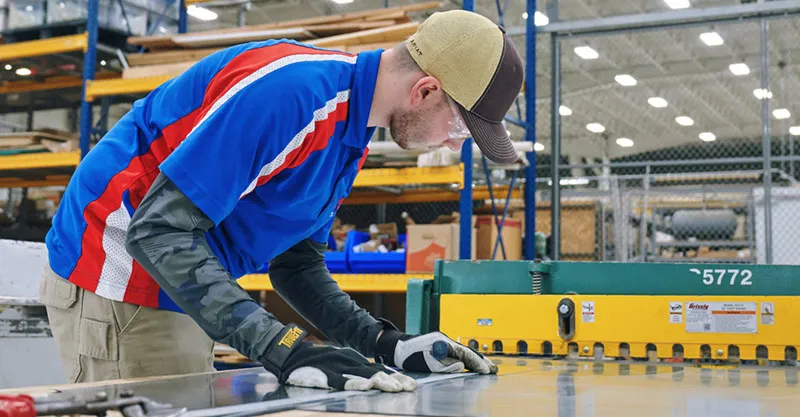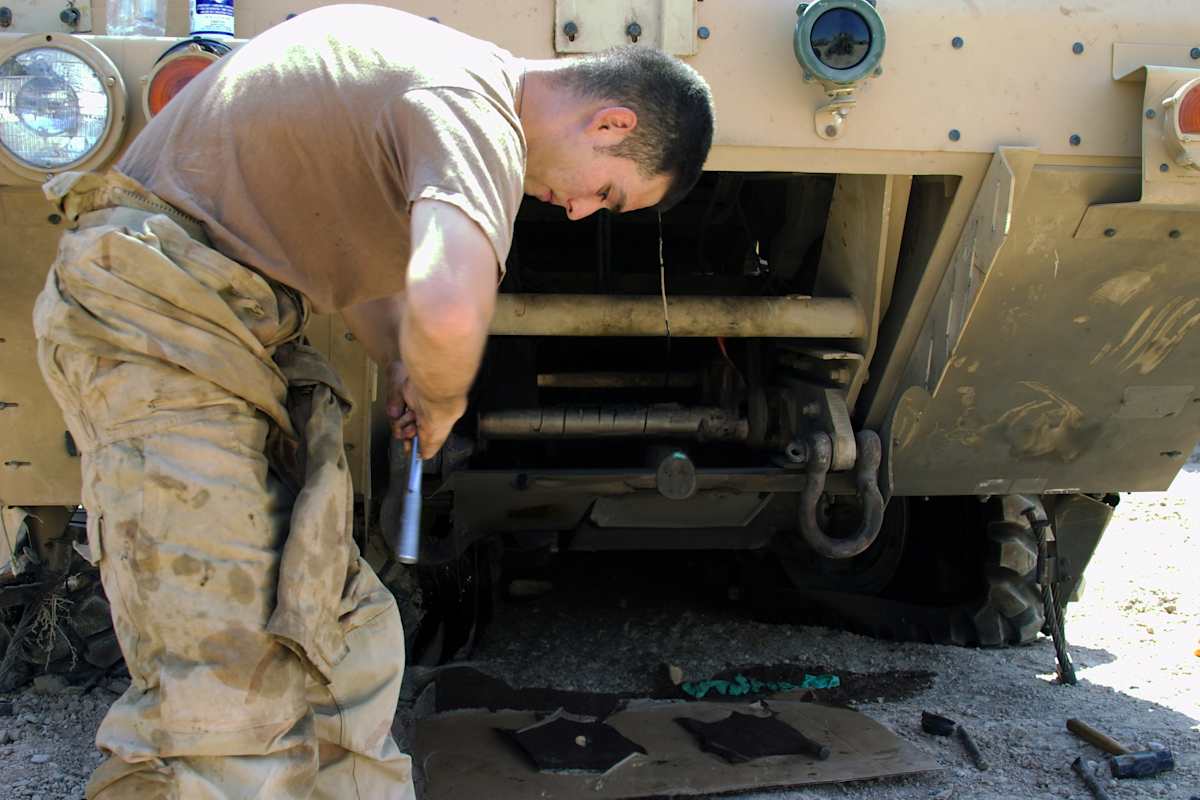Why Trade School Can Be a Great Option for Veterans & Military
Trade school is a popular choice for veterans because it can offer an accelerated path to new career! Learn why trade schools are a great option for veterans!
Key Points
HVAC systems are everywhere.
They can be found in homes, shopping malls, campuses and almost any other building or property you can think of. This technology is critical, helping us keep cool or warm, protect merchandise and assets, maintain indoor air quality, lower utility costs and shield ourselves from the effects of harsh weather.
The demand for working HVACR systems calls for skilled technicians. In fact, total HVACR technician employment is expected to exceed 481,000 by 2033!72
If you’re a military veteran at Universal Technical Institute (UTI), you have options for tailoring your HVACR training and receiving educational benefits for your service to your country.
Continue reading to find out more! You'll learn what HVACR is and how to get started with HVACR training for veterans.
HVAC stands for heating, ventilation and air conditioning. It’s often used interchangeably with “HVACR" or "HVAC/R,” but the latter include the refrigeration trade. Technicians in the HVACR industry work on systems like:
Typical HVACR duties include installing, maintaining, inspecting and repairing these systems.
People suited for HVACR roles — even entry-level — are those with formal training like the kind UTI offers in its 9- to 10-month HVACR Technician program.1 Trained technicians can maximize the benefits of HVACR systems, such as:
Clearly, there's a lot more at stake with HVACR systems than deciding how many layers to wear indoors. HVACR performance is also a matter of safety, responsibility and the law. These factors are essential to employers with high standards, which is why they tend to hire HVACR technicians with formally accredited technical training.
Read More: HVACR Career Outlook Information
People who previously served in the military favor technical fields. That’s because the skills these fields require overlap significantly with those needed for military service. HVACR work is no exception.
HVACR technicians must possess strong communication skills, problem-solving abilities and adequate physical strength. This allows them to speak with teammates and customers about the service being performed, solve unexpected problems on the job and be able to physically navigate HVACR systems.

These skills can be honed with the same kind of hands-on training UTI provides, which can help students develop strong technical foundations of HVACR knowledge and kinesthetic skills.
Students must have hands-on learning capability along with math and science aptitude to make the most of this training. Doing so enables them to understand how HVACR systems work, read system blueprints, optimize system performance and accurately diagnose system problems before solving them.
Employers hire HVACR technicians who have completed a trade program because they are more likely to be prepared for the complexities of HVACR work. A trade program provides a structured environment that is clean, organized, controlled and equipped with industry-standard machinery and equipment. All this assists students in learning practical HVACR skills.
Prior industry experience can also be established through certification, which is best prepared for through structured technical training – such as that provided by our HVACR training program. As a result, employers may prefer to hire certified HVACR technicians over those who lack such credentials. Potential HVACR certifications earned by technicians in the field include:
Resources such as UTI's Career Services team can also inform aspiring technicians about entry-level positions in their desired industry. Our team can even help students with their job search by assisting with job applications, interview techniques and much more. Graduates can also return years after graduation and use our job search resources to potentially advance their already established careers.

Some UTI campuses offer military student advantages like:
Because we are a GI Bill®-Approved Trade School, eligible veteran students can receive financial assistance for full-time enrollment. We also couple this status with veteran-directed assistance, which is available on every UTI campus. As a result, our students can apply for GI Bill® and VA benefits more easily.
We have many veteran students, and most of our Military Admissions Representatives are U.S. veterans themselves! This can be highly beneficial because military duty is a unique experience. It can be encouraging to be on the same campus with people who understand it as well, especially if you’ve relocated to attend school and aren’t familiar with the area.
Read more: Military & Veterans Services
There are HVACR career prospects particularly well-suited to those with former military training, such as opportunities to return to the military as an HVAC technician. It’s a uniquely suitable role for veterans to fill because applicants with prior military experience are more likely to meet the HVAC military job requirements, which typically include:
Military HVAC work is not always dangerous. However, there inevitably is an added risk and people without prior military experience may struggle to weather these higher-stakes conditions.
Prior military training usually means you may be better prepared for these elements. You'll also likely have needed problem-solving skills, HVACR technical skills, "cool-headedness" and resilience to handle the work because you followed your military training with HVACR training.
Veterans who complete HVAC training can benefit from a structured career path with opportunities to advance through hard work and experience. Their military background can translate into strong discipline and leadership skills, making them ideal candidates for roles such as supervisors and project managers.77
According to the BLS, the median annual salary for HVACR technicians in the United States was $57,300 in May 2023.58 This means half earned more and half earned less. Keep in mind that salary depends on several factors, including experience, employer, demand and cost of living in the area.
Yes, UTI offers a Salute to Service grant to active military members and veterans.22 Our VA team can also help you search for ways to help cover educational expenses!
Where there’s heating, ventilation, cooling and refrigeration, there’s an HVACR technician — or at least, there should be. Develop your skills as an HVACR technician to meet this need! To do that, you must first finish the right training.
Looking for an HVAC school for veterans that accepts the GI Bill® and VA benefits? Our HVACR program is offered at several campus locations across the country. Here, we can help you prepare for hands-on industry work by providing HVACR training for veterans.
Apply to our HVACR school to make the most of your potential!
Universal Technical Institute of Illinois, Inc. is approved by the Division of Private Business and Vocational Schools of the Illinois Board of Higher Education.